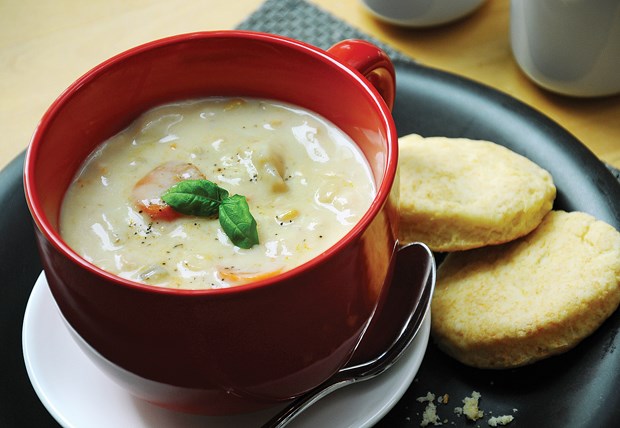A dead mouse in a restaurant kitchen, cooked food stored in a box used to ship raw pork, flies buzzing around food being prepared, grease-covered storage areas and a cooler covered in mould — those were some of reasons behind 13 health department closures of restaurants on the North Shore last year.
Bakeries, sushi restaurants, Chinese food eateries and a falafel joint were all on the list of closures for last year, which ranged from a day to two weeks.
Closures are based on inspections that happen at all restaurants at least once a year, said Steve Chong, manager of environmental health for Vancouver Coastal Health — and sometimes much more often, depending on past results.
Inspectors don’t give advance notice that they’re coming.
And while the vast majority of restaurants are complying with regulations, sometimes reports of what inspectors find behind closed kitchen doors doesn’t make for appetizing reading.
All restaurant inspection reports are listed online and viewable by the public.
Among the restaurants closed by health department last year inspectors noted black grime on a ceiling, and spilled produce and rodent droppings on the floor in dry storage areas.
There was also a hand washing sink that wasn’t working, a pot of chicken parts in stock left out overnight to cool at room temperature (food should always be promptly refrigerated at 4 C or below) and an owner observed pouring grease directly into a storm drain.
Inspectors look at food preparation areas, overall cleanliness, and how equipment is maintained and cleaned, particularly in food contact areas, said Chong.
They also check to see that cooked food is at a certain minimum temperature and is kept hot, while cold food is kept cold. Restaurants serving raw sushi have to freeze it for a certain amount of time at -20 C to kill any pathogens then keep it refrigerated, he said.
Not having a proper hot water supply can close a restaurant — even if it’s because of factors that aren’t the operator’s fault — like a broken water line.
In some cases, restaurants will call in inspectors themselves to go over proper procedures — such as the Capilano Golf and Country Club did last June when it was forced to close temporarily due to an outbreak of a Norwalk virus among kitchen staff and club members.
Most of the time, inspectors will issue warnings and have meetings to address problems before closing a restaurant, said Chong. Sometimes problems are serious enough that they put customers’ health in danger. Those restaurants are issued closure orders immediately.
Chong said if members of the public get sick after eating at a restaurant or observe questionable practices, they should contact their local health authority to follow up.
Restaurants that were temporarily closed during the past year on the North Shore included Almhani Bakery at 214 Mackay Rd., Orange Door at 119 Second St., Sushi Bella at 152 Lonsdale Ave., Spicy House Restaurant at 2039 Lonsdale, Hanugin Grill at 1604 Lonsdale, Kolbeh Restaurant at 731 Lonsdale, and Haru Sushi at 2041 Lonsdale. Also closed were Ika Sushi at 965 Marine Dr. in North Vancouver, Capilano Golf and Country Club at 420 Southborough Dr., The Most Excellent Baking Co. at 1467 Crown St., Golden Pearl at 333 Brooksbank Ave. and Food Warehouse at 108 West First St.
Chong said anyone wondering about whether to eat at a restaurant they know had been closed by the health department should probably go online and read the inspection reports for themselves, which detail any problems found and measures taken to correct them.
“Based on what’s in the inspection report, they should form their own opinions,” he said.



